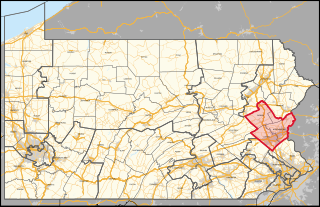
Harm reduction, or harm minimization, refers to a range of intentional practices and public health policies designed to lessen the negative social and/or physical consequences associated with various human behaviors, both legal and illegal. Harm reduction is used to decrease negative consequences of recreational drug use and sexual activity without requiring abstinence, recognizing that those unable or unwilling to stop can still make positive change to protect themselves and others.

A needle and syringe programme (NSP), also known as needle exchange program (NEP), is a social service that allows injecting drug users (IDUs) to obtain clean and unused hypodermic needles and associated paraphernalia at little or no cost. It is based on the philosophy of harm reduction that attempts to reduce the risk factors for blood-borne diseases such as HIV/AIDS and hepatitis.

Supervised injection sites (SIS) or drug consumption rooms (DCRs) are a health and social response to drug-related problems. They are fixed or mobile spaces where people who use drugs are provided with sterile drug use equipment and can use illicit drugs under the supervision of trained staff. They are usually located in areas where there is an open drug scene and where injecting in public places is common. The primary target group for DCR services are people who engage in risky drug use.
Needle sharing is the practice of intravenous drug-users by which a needle or syringe is shared by multiple individuals to administer intravenous drugs such as heroin, steroids, and hormones. This is a primary vector for blood-borne diseases which can be transmitted through blood. People who inject drugs (PWID) are at an increased risk for Hepatitis C (HCV) and HIV due to needle sharing practices. From 1933 to 1943, malaria was spread between users in the New York City area by this method. Afterwards, the use of quinine as a cutting agent in drug mixes became more common. Harm reduction efforts including safe disposal of needles, supervised injection sites, and public education may help bring awareness on safer needle sharing practices.

The National Institute on Drug Abuse (NIDA) is a United States federal government research institute whose mission is to "advance science on the causes and consequences of drug use and addiction and to apply that knowledge to improve individual and public health."

Pennsylvania's 7th congressional district includes all of Carbon, Lehigh, and Northampton Counties; and parts of Monroe County. The district is represented by Democrat Susan Wild.

Drug injection is a method of introducing a drug into the bloodstream via a hollow hypodermic needle, which is pierced through the skin into the body. Intravenous therapy, a form of drug injection, is universally practiced in modernized medical care. As of 2004, there were 13.2 million people worldwide who self-administered injection drugs outside of medical supervision, of which 22% are from developed countries.

The Philadelphia Fire Department provides fire protection and emergency medical services (EMS) to the city of Philadelphia. The PFD's official mission is to protect public safety by quick and professional response to emergencies and through the promotion of sound emergency prevention measures. This mandate encompasses all traditional firefighting functions, including fire suppression, with 58 Engine companies and 27 Ladder companies as well as specialty and support units deployed throughout the city; specialized firefighting units for Philadelphia International Airport and the Port of Philadelphia; investigations conducted by the Fire Marshal's Office to determine the origins of fires and to develop preventive strategies; prevention programs to educate the public in order to increase overall fire safety; and support services such as: research and planning, management of the Fire Communications Center within the City's 911 system, and operation of the Fire Academy.
The drug policy of Portugal, informally called the "drug strategy", was put in place in 2000, and came into effect in July 2001. Its purpose was to reduce the number of new HIV/AIDS cases in the country, as it was estimated around half of new cases came from injection drug use.
HIV prevention refers to practices that aim to prevent the spread of the human immunodeficiency virus (HIV). HIV prevention practices may be undertaken by individuals to protect their own health and the health of those in their community, or may be instituted by governments and community-based organizations as public health policies.

Scott County is a county located in the U.S. state of Indiana. As of 2020, the population was 24,384. The county seat is Scottsburg.
Low-threshold treatment programs are harm reduction-based health care centers targeted towards people who use substances. "Low-threshold" programs are programs that make minimal demands on the patient, offering services without attempting to control their intake of drugs, and providing counselling only if requested. Low-threshold programs may be contrasted with "high-threshold" programs, which require the user to accept a certain level of control and which demand that the patient accept counselling and cease all drug use as a precondition of support.
Responsible drug use seeks to maximize the benefits and minimize the risks associated with psychoactive drug use. For illegal psychoactive drugs that are not diverted prescription controlled substances, some critics believe that illegal recreational drug use is inherently irresponsible, due to the unpredictable and unmonitored strength and purity of the drugs and the risks of addiction, infection, and other side effects.

There is an ongoing opioid epidemic in the United States, originating out of both medical prescriptions and illegal sources. The epidemic began in the United States in the late 1990s, according to the Centers for Disease Control and Prevention (CDC), when opioids were increasingly prescribed for pain management, resulting in a rise in overall opioid use throughout subsequent years.
Gerry Stimson is a British public health social scientist, emeritus professor at Imperial College London from 2004, and an honorary professor at the London School of Hygiene and Tropical Medicine from 2017. Stimson has over 220 scientific publications mainly on social and health aspects of illicit drug use, including HIV infection. He has sat on numerous editorial boards including AIDS, Addiction, and European Addiction Research, and with Tim Rhodes he was the co-editor-in-chief of the International Journal of Drug Policy from 2000 to 2016. He is one of the global leaders for research on and later advocacy for harm reduction.
Harm reduction consists of a series of strategies aimed at reducing the negative impacts of drug use on users. It has been described as an alternative to the U.S.'s moral model and disease model of drug use and addiction. While the moral model treats drug use as a morally wrong action and the disease model treats it as a biological or genetic disease needing medical intervention, harm reduction takes a public health approach with a basis in pragmatism. Harm reduction provides an alternative to complete abstinence as a method for preventing and mitigating the negative consequences of drug use and addiction.

OnPoint NYC is a New York City nonprofit that operates two privately-run safe injection sites in East Harlem and Washington Heights. Placed at the sites of existing syringe service programs, these were America's first safe injection facilities when they opened in November 2021.
NEXT Harm Reduction is an American nonprofit that sends naloxone, sterile syringes, and other harm reduction supplies through the mail. It is based in the state of New York but serves clients throughout the country. It is the first formal mail-delivered harm reduction service in the US.
The Damien Center is the largest care center for people with HIV/AIDS in Indianapolis, Indiana. It has been open since 1987 and is the longest-sustained project of the Indy Bag Ladies.
Access, Harm Reduction, Overdose Prevention and Education, commonly referred to as AHOPE Boston or AHOPE Needle Exchange, and formerly called Addicts Health Opportunity Prevention Education, is a needle exchange and public health initiative of the Boston Public Health Commission.










